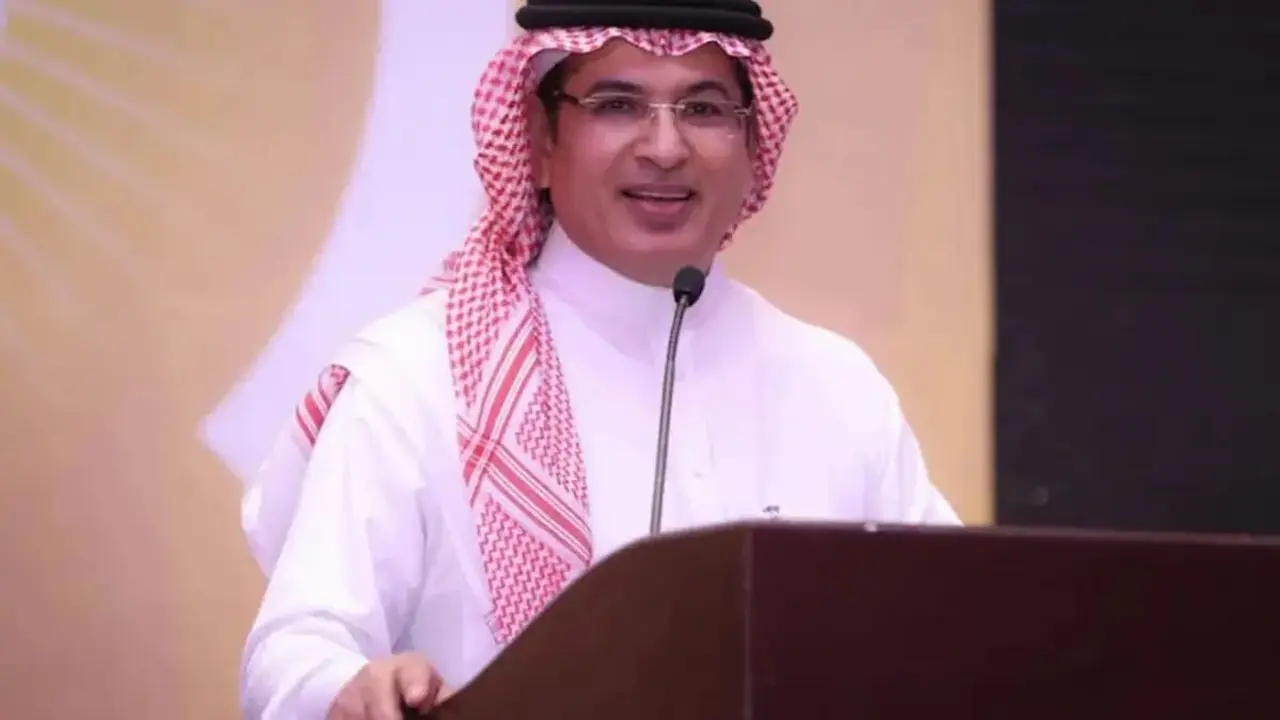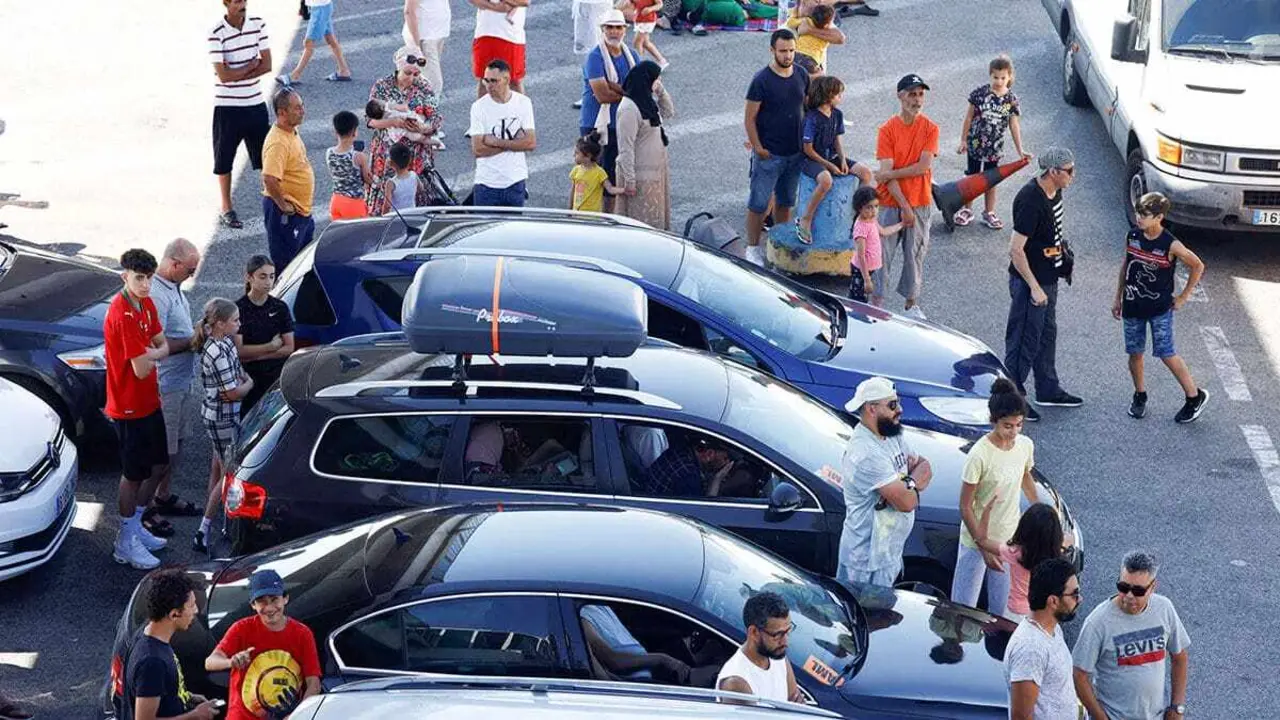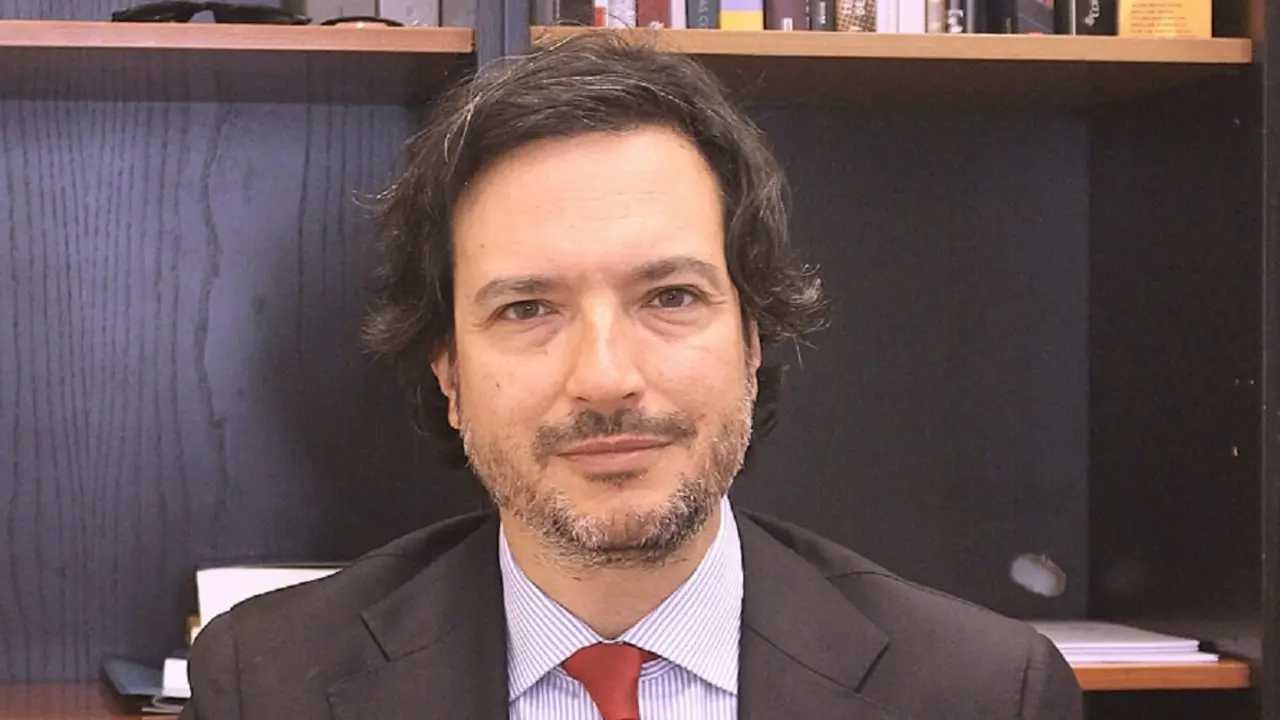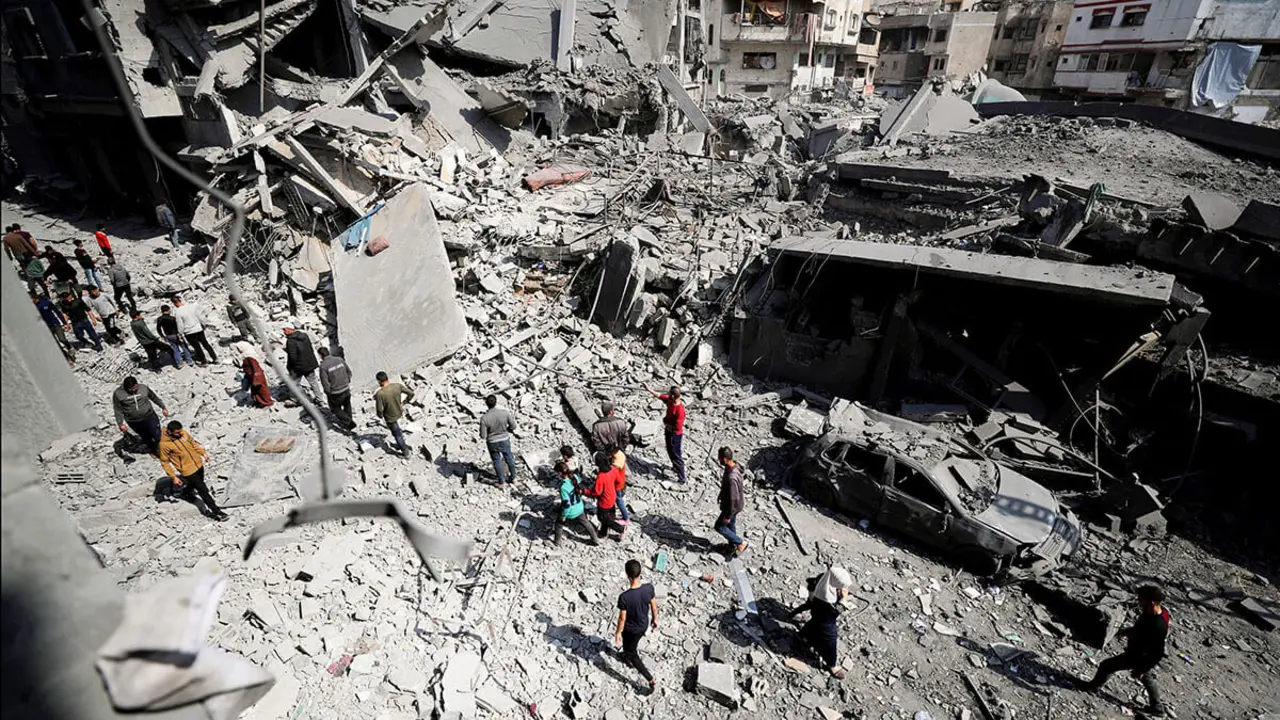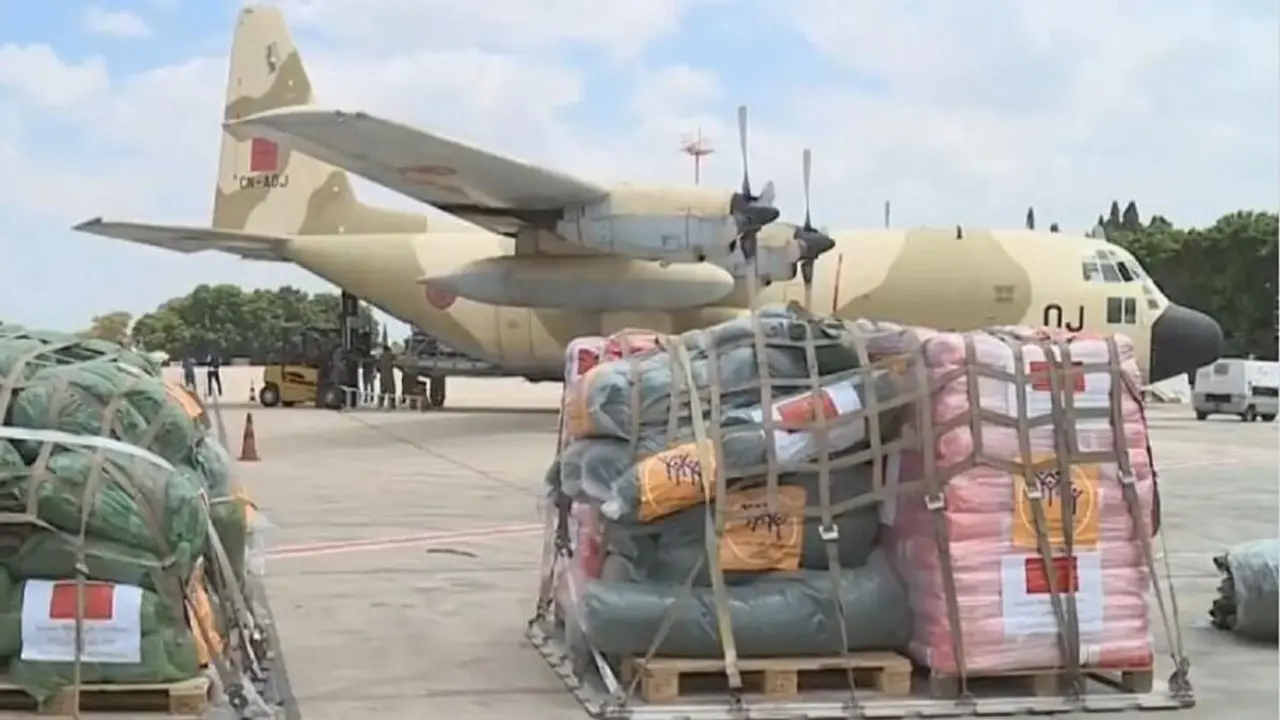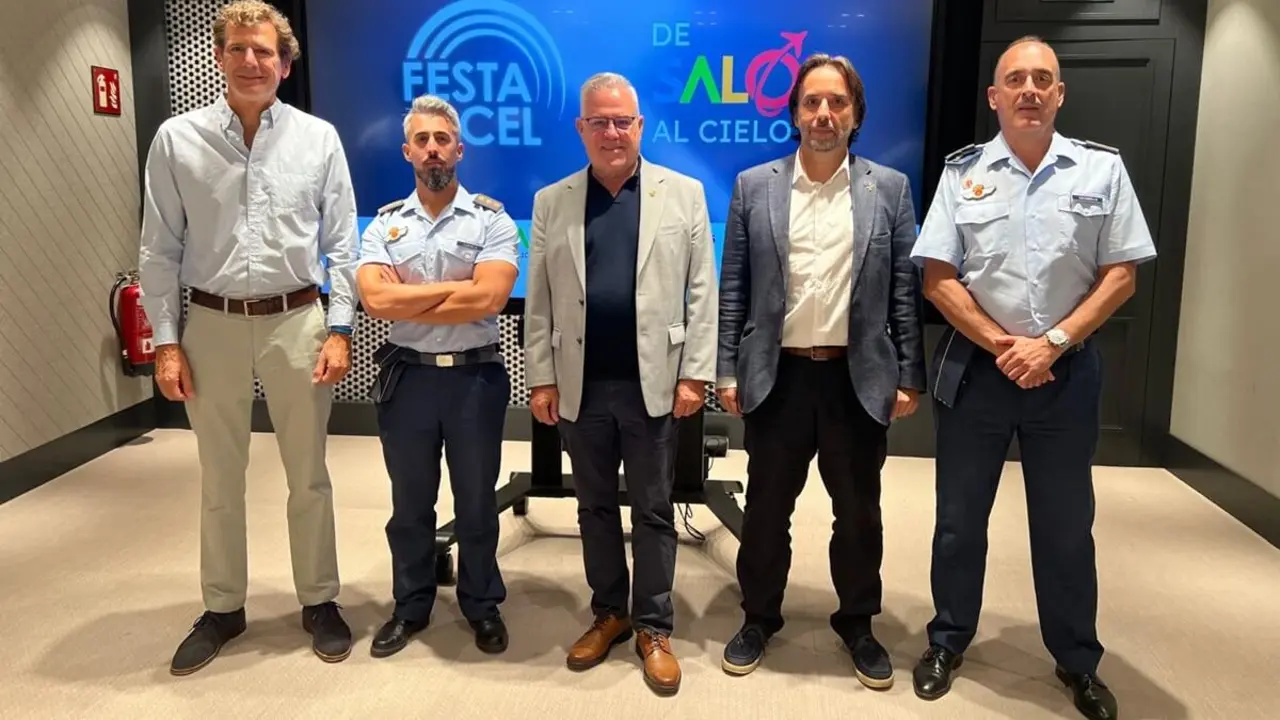Radio Televisión Canaria, Patricia Costa and José A. González, winners of the VII Journalism Awards against Gender Violence of the Aliados Foundation
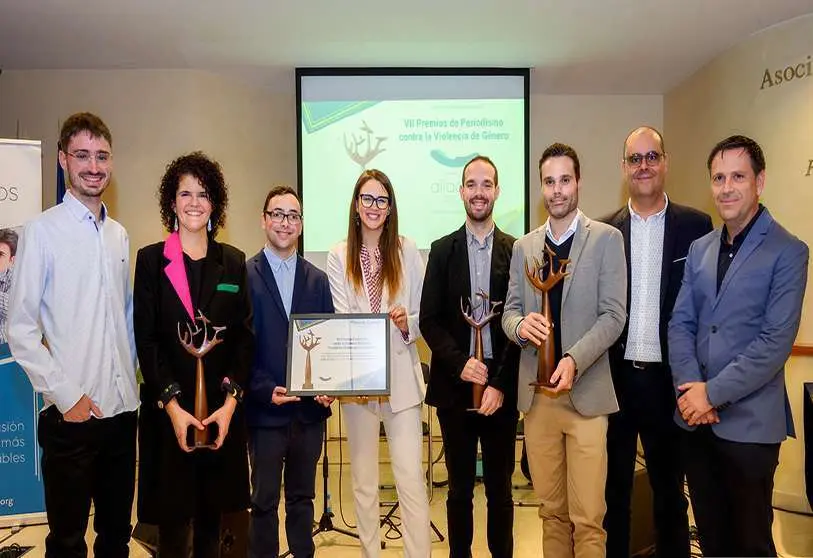
The Aliados por la Integración Foundation presented its 7th Journalism Awards against Gender Violence at the headquarters of the Madrid Press Association. The new edition of the awards highlighted the idea of the commitment that the media and journalism professionals must have in the fight against gender violence and abuse of all kinds against women.
The message against gender violence was clear and was symbolically expressed with the opening performance of the musical group Mamma Nat & The Blowing Stones, who performed the song "Valerie" by Amy Winehouse, an artist who suffered in her own flesh from gender violence and who on many occasions did not find the necessary support to face such a situation, as Eduardo Rodríguez, head of Communications at the Aliados Foundation, recalled, who was in charge of acting as master of ceremonies at the awards ceremony.
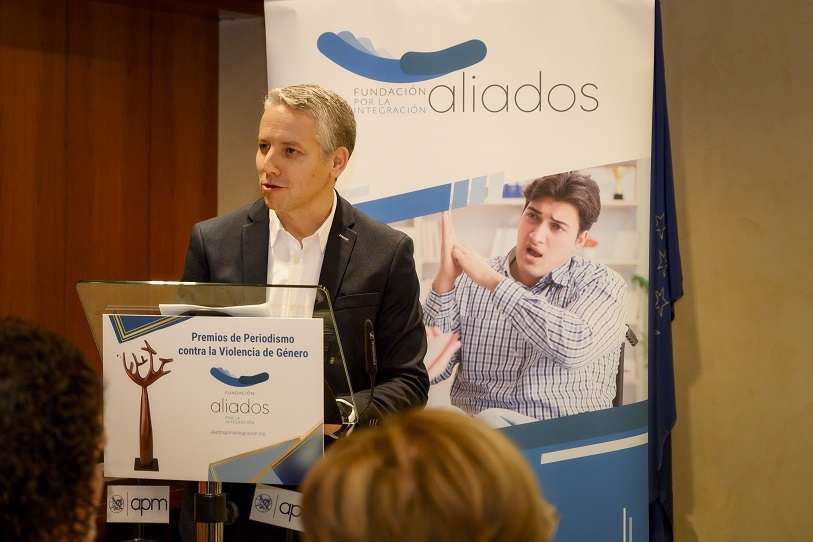
Once again this year, the Aliados por la Integración Foundation organised the Journalism Awards against Gender Violence with the aim of making visible and promoting the struggle of various professionals in the journalistic sector against the terrible problem of gender violence. The aim is to reward all those professionals who promote the defence and dissemination of values against this social scourge.
In this year's 2022 edition, the awards went to the report "When violence leads to prison", from the programme Tolerancia cero on Radio 5 hosted by Patricia Costa, in the radio category. In the written media category, José Antonio González was awarded for " Give me a ring when you arrive; this is how street harassment discriminates", published in ABC and Vocento's regional newspapers. And in the television category, the prize went to the Fuera de plano team, produced by the company Mediareport SL for Televisión Canaria, for the report " Life ahead".
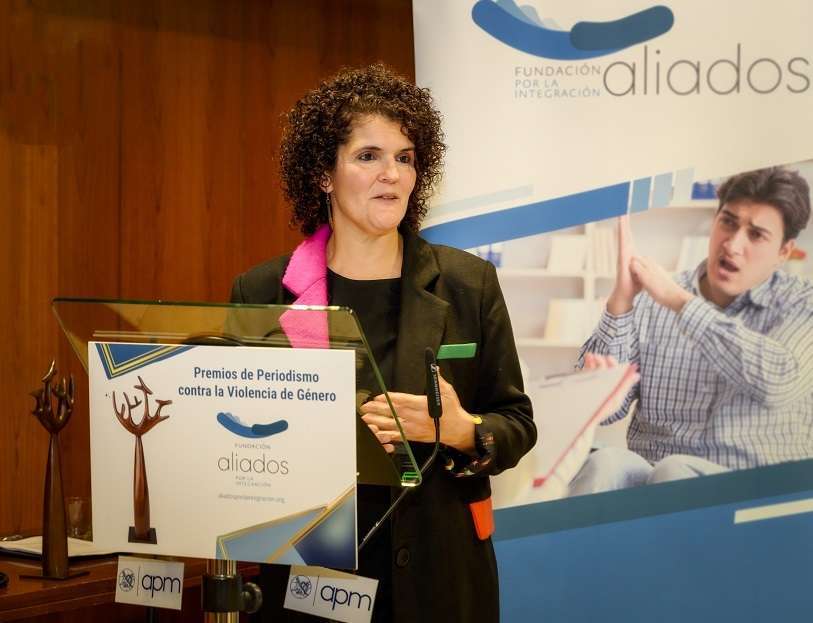
Eduardo Rodríguez acknowledged the important work of journalism in the fight against gender violence and praised the 116 entries submitted for these 7th Journalism Awards against Gender Violence. The director of the awards ceremony emphasised that in cases of gender violence there are "many profiles and dramas, many situations with tragic endings or with an envelope of hope, strength and overcoming" that allow women to move forward in the latter case. Eduardo Rodríguez indicated that "the jury unanimously saw the unwavering commitment of journalists and media" who serve as loudspeakers to not silence what happens. And, therefore, there is an "obligation for all" to recognise good practices and appropriate news treatment to address these issues.
The head of Communications at the Aliados Foundation also highlighted the commitment of the jury and the "high level of quality of the work presented". The jury was made up of Almudena Fontecha, president of the Executive Committee of Fundación Aliados por la Integración, Nemesio Rodríguez, president of the Federation of Spanish Journalists' Associations (FAPE), Alfonso Nasarre, director of Onda Madrid, Pilar García Muñiz, host of Mediodía COPE, Pilar Álvarez, head of Última Hora at El País, Óscar Vázquez, deputy director of Antena 3 Noticias, Raquel Benito, editor-in-chief of El Confidencial, Alfonso Rodríguez, director of Colpisa, Myriam Noblejas, journalist, and Javier Fernández Arribas, director of Atalayar and contributor to various media.
The prizes were worth 3,000 euros each and an exclusive bronze sculpture by the Valladolid sculptor Concha Gay entitled "Tree of Light".
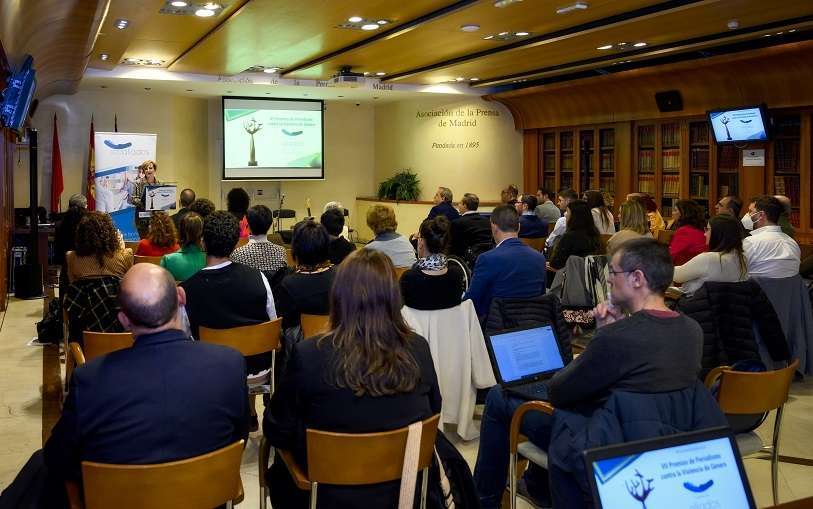
In the television category, the programme Fuera de Plano won the prize for the report " Life ahead", which explores the protocol of action that is developed from the moment the complaint is made, offering the keys to understanding why young people normalise gender violence and highlighting the "fundamental role" of the victim's environment in denouncing and tackling the problem.
Borja Fanjul, second deputy mayor of Madrid City Council, was in charge of presenting the award to Daniel Suárez, Roberto Almau and Ángel Báez, who remarked that the award "highlights the work of the media in raising awareness of this scourge" and thanked the three women who were the protagonists of the report " Life ahead of us" for telling their story. Daniel Suárez referred to the emotion they experienced during the recording and post-production of the report and announced the donation of the prize to three Canarian associations that defend victims of gender violence. "We have our lives ahead of us and we have to put tools at the service of women", said Daniel Suárez.
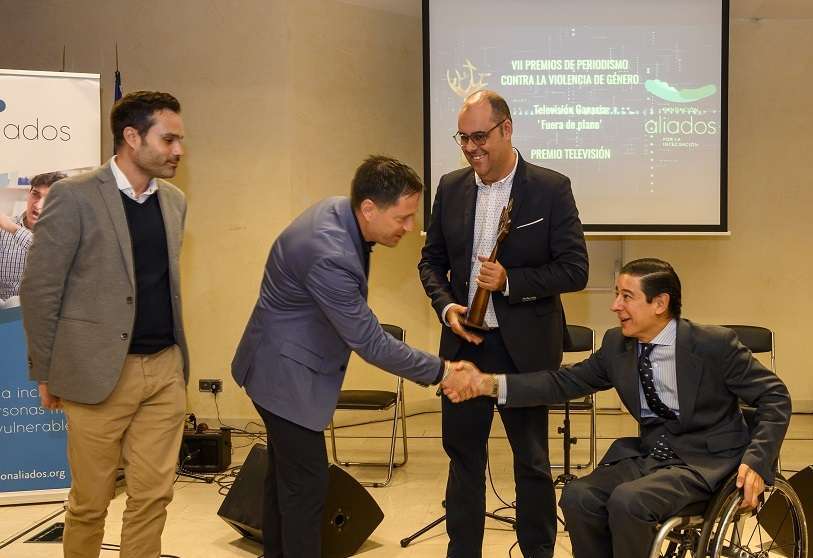
For his part, Ángel Báez indicated that public television stations must "take their social commitment further" and explained that gender violence "is all around us", giving the example that one of the protagonists of the report was a colleague of Radio Televisión Canarias at the time of the denunciation.
In the radio category, the award went to Patricia Costa, director of the programme Tolerancia cero on Radio 5 on Radio Nacional de España for the report " When violence leads to prison", starring Sheila, Davinia, Marisol and Isabel, inmates at the Madrid I-Mujeres Penitentiary Centre in Alcalá de Henares and participants in the programme " Being a woman". This radio work explains that 70% of the women who end up in prison have suffered some kind of violence, which in many cases leads them to commit crimes and end up in prison. Many of these women have suffered gender violence in freedom and then continue to suffer it in prison because they continue to have problems with their ex-partners and in several cases with the situation of their children in common. "Being a woman" aims to help these women regain their self-esteem, reject any unsuitable relationship and be able to identify abuse when it occurs. An example so that these unfortunate events are not repeated.
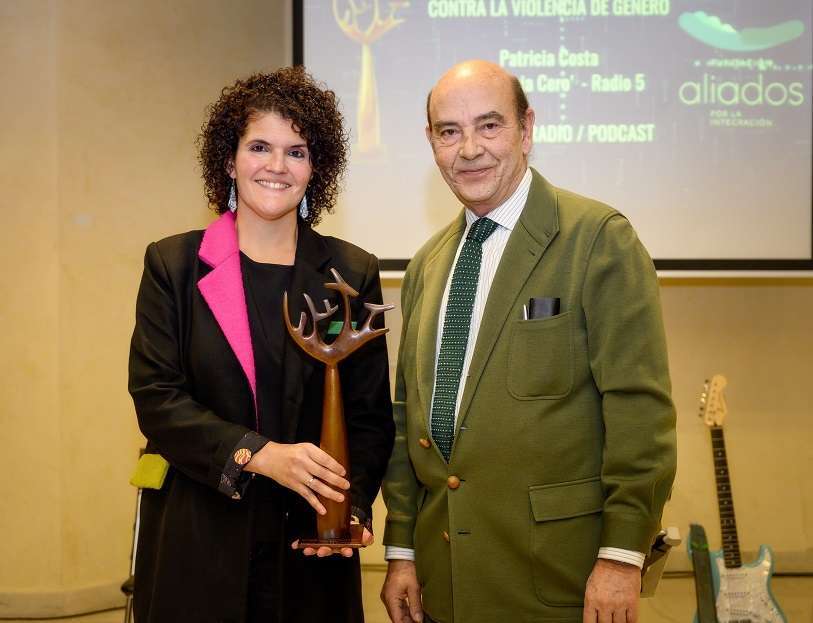
Alfonso Nasarre, director of Onda Madrid, presented the award to Patricia Costa, who thanked the Foundation for the recognition, stressing that her programme is a "pioneer" in tackling male violence. The radio programme began in 2004 and is still very necessary because the problem continues. Patricia Costa wanted to "highlight the value of social, respectful, ethical and committed journalism, which takes a lot of work, but is very important". The director of Zero Tolerance called for "providing resources" to programmes dedicated to these issues. "We have many challenges ahead of us, such as ensuring that male violence is never normalised. To meet this challenge we must continue to talk about this issue," explained Patricia Costa, who pointed out that we must "show that male violence is everywhere and we must give more importance" to this type of work.
The jury also awarded the Special Mention to María Aramendi, Esther Valverde, Alejandro Losada, Juan Martín, Nacho Vázquez, Laura Masegosa and Guillem Hidalgo; students of the RNE Master's Degree, for their work "Invisibles: the trafficking of Ukrainian women in Spain". A documentary that reflects the difficult situation of women from Eastern Europe who end up subjected to the sex industry and that tries to give the keys to why these cases occur and to talk about the mechanisms that exist in Spain to prevent the sexual use of these women. This journalistic work seeks to show the judicial and political struggle of those affected against trafficking and prostitution in Spain. The award was presented by journalist Myriam Noblejas.
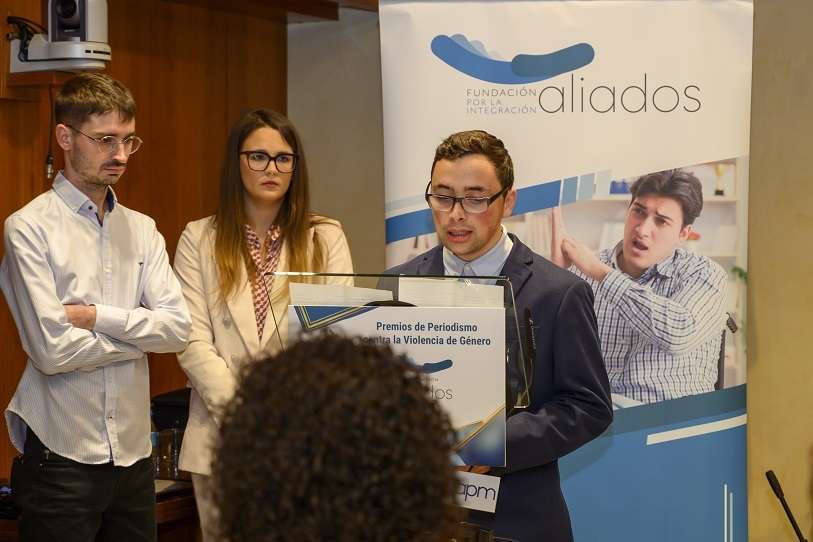
Finally, in the written media category, the prize went to José Antonio González, for his work " Give me a ring when you arrive; this is how street harassment discriminates", published in ABC and Vocento's regional newspapers. Almudena Fontecha, president of the Executive Committee of the Aliados por la Integración Foundation, was in charge of presenting the award to José Antonio González, who explained that the report arose from a press article that provided devastating data and that made him think and ask a lifelong friend of his if she had felt violated at some point in her life, to which she replied "yes", in an episode in a discotheque in Coslada in Madrid, something she had not spoken to anyone about, not even her parents. From there, the award-winning journalist decided to put the spotlight on male violence, on "small gestures that go unnoticed, but which are important because they violate women".
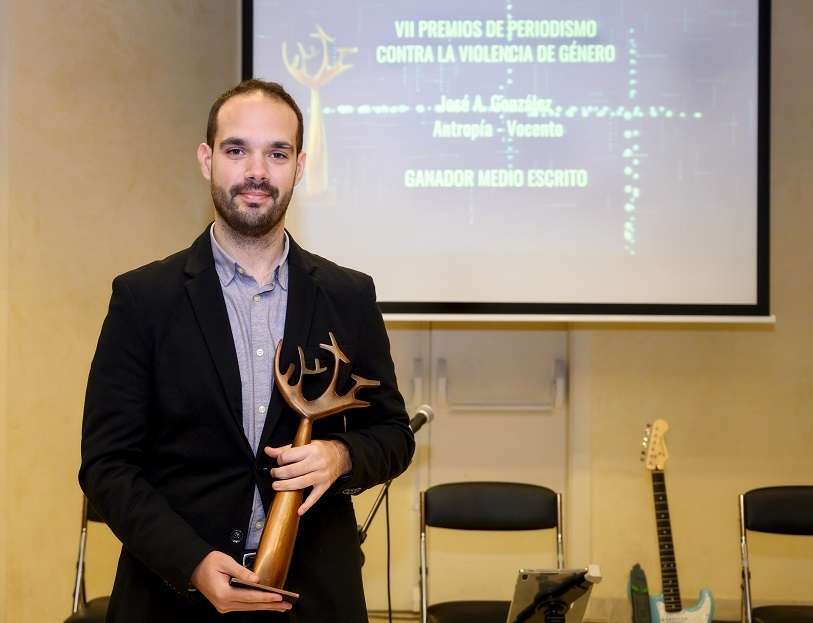
At the end of the awards ceremony, Almudena Fontecha herself acknowledged the work of professional journalists and highlighted the value of this awards ceremony at the headquarters of the Madrid Press Association, an organisation founded in 1895 and which defends "democracy, tolerance, pluralism, good professional practice and freedom of information".
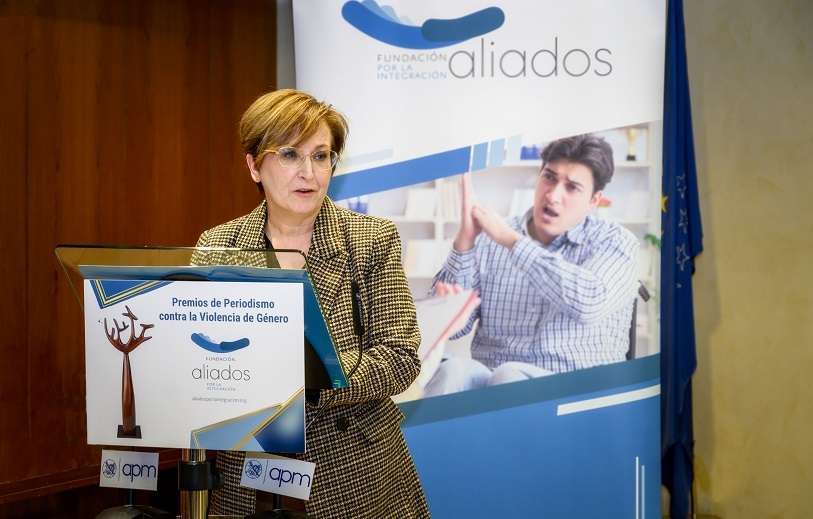
The president of the Executive Committee of the Aliados por la Integración Foundation thanked the 116 projects that "have made it difficult for us to choose the winners" and also stressed the importance of providing employment opportunities for victims of gender violence to open the door for them to get out of the situation they are in. Precisely, the Aliados Foundation has a clear commitment to raise awareness in society and the media are "allies" in this task.

